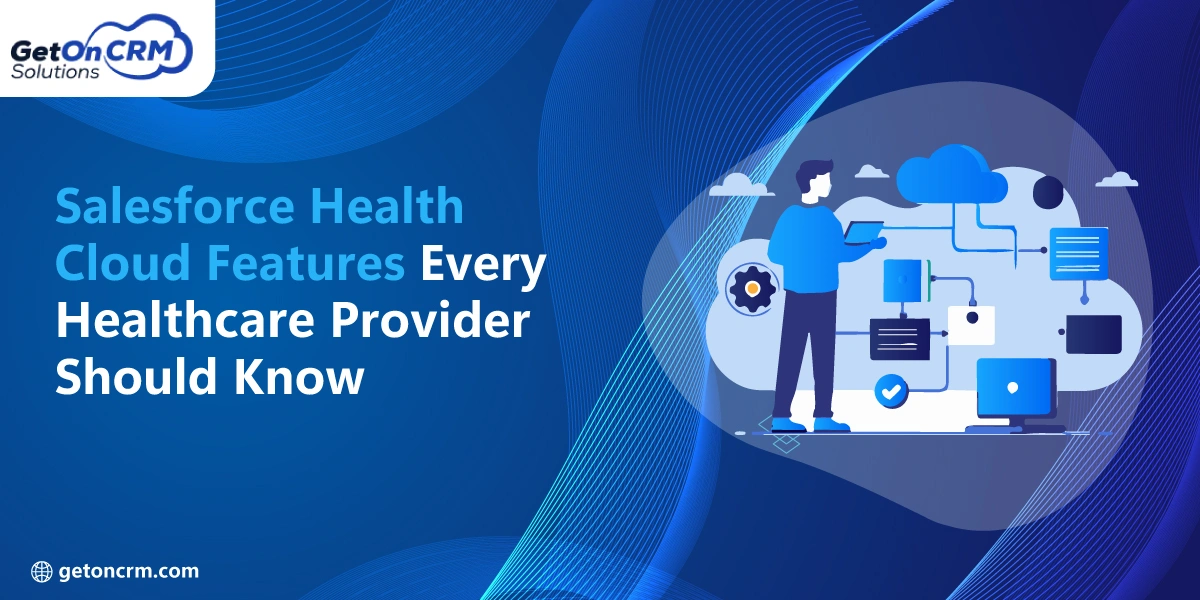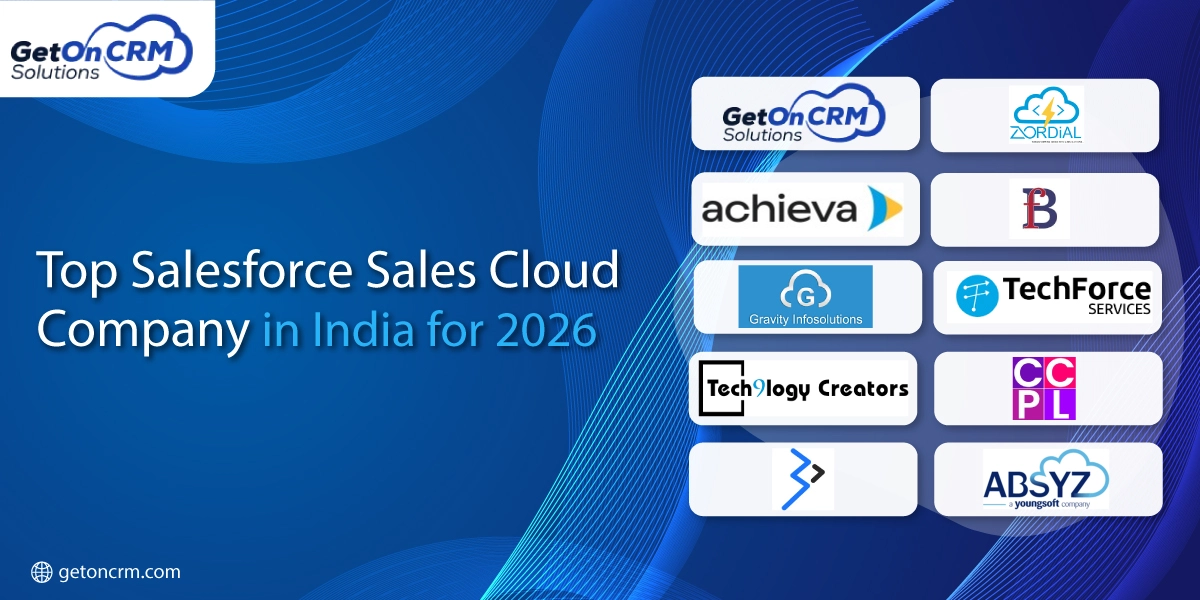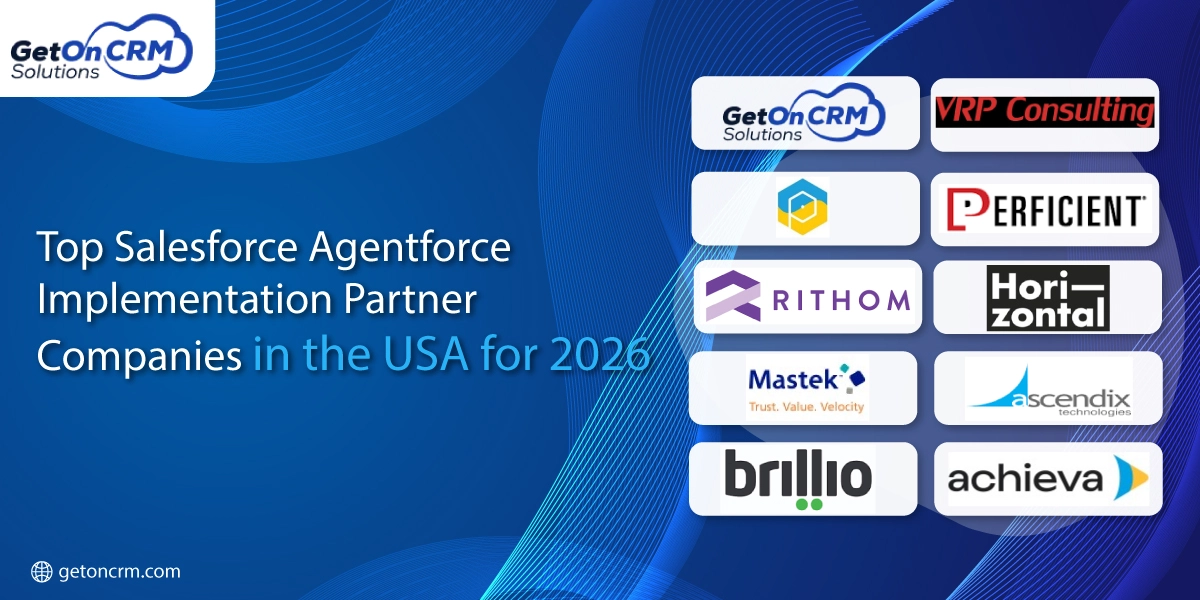The healthcare industry is undergoing a major transformation, driven by the growing need for healthcare personalization. Modern patients expect care experiences that are as tailored and responsive as those they receive in other areas of their lives.
What is personalization in healthcare?
Personalization in healthcare refers to designing medical treatments, communications, and interactions around each patient’s unique health data, preferences, and lifestyle. This data-driven patient personalization helps healthcare organizations improve outcomes, enhance satisfaction, and build long-term trust.
In this article, we explore practical healthcare personalization strategies and the role of CRM platforms like Salesforce Health Cloud in scaling these efforts effectively through a customer-first approach.
The Need for Personalization in Healthcare
Current Landscape
Healthcare personalization is essential in addressing patients’ diverse needs. Traditional healthcare models, which often rely on standardized treatment protocols, fail to account for individual variations in patient health conditions, lifestyles, and preferences. Personalization in healthcare aims to tailor medical treatment to each patient’s characteristics. A McKinsey report highlights that personalized care can improve health outcomes and patient satisfaction, thereby fostering loyalty and reducing costs associated with ineffective treatments.
Patient Expectations
Modern patients are informed and proactive about their health. They expect personalized interactions, whether they are booking appointments, receiving treatment plans, or accessing follow-up care. According to a PwC survey, 71% of patients prefer healthcare providers that offer personalized services. This demand for personalization is driven by the increased use of digital tools and platforms that offer convenience and customization in other sectors, such as retail and finance.
Building a Customer-First Strategy
Foundational Elements
Developing a customer-first strategy is central to any successful healthcare personalization strategy.
A strong foundation includes:
- Executive Sponsorship: Leadership commitment ensures alignment of goals and supports scalable personalized care initiatives.
- Operational Resources: Tools like Salesforce Health Cloud enable healthcare providers to manage patient relationships efficiently and deliver personalized health programs at scale.
- Analytics Capabilities: Advanced analytics transform raw data into actionable insights, driving smarter data-driven patient personalization.
Organizational Models
Healthcare organizations can adopt various models to support personalization:
- Functional Silos: Traditional organizational structures often involve functional silos, where different departments operate independently. That can lead to fragmented patient data and inconsistent care experiences. While functional silos can drive customization within specific departments, they often result in duplication of efforts and limited knowledge sharing.
- Cross-LOB Task Forces: To overcome the limitations of silos, organizations can establish cross-line-of-business (LOB) task forces. These teams facilitate collaboration and knowledge sharing across departments, promoting a unified approach to patient care. However, the burden of coordination often falls on operations teams, which can hinder efficiency.
- Centers of Excellence (COEs): COEs can leverage Salesforce CRM to integrate various silos, ensuring seamless communication and consistent patient experiences across all touchpoints. Salesforce’s robust data management and analytics capabilities support the strategic framework needed for COEs to thrive.
Implementing Personalization at Scale
Technology and Tools
Scaling personalized health programs at scale requires the right combination of advanced technologies and unified data systems.
Artificial Intelligence (AI) and Machine Learning (ML) drive predictive care models, while data analytics power data-driven patient personalization—helping clinicians make timely, evidence-based decisions for every individual.
Platforms like Salesforce Health Cloud make it easier for healthcare organizations to integrate patient data and execute business logic and process automation in healthcare, ensuring every interaction is personalized and consistent.
Data Integration
Successful personalization begins with patient profile unification—consolidating information from EHRs, wearables, and patient-reported outcomes into one unified profile.
This cloud automation advantage in healthcare ensures providers can view a complete 360° perspective of each patient. Salesforce Health Cloud simplifies this integration, providing a single source of truth for clinical, behavioral, and engagement data.
Privacy and Compliance
Maintaining patient trust is paramount in healthcare personalization. Providers must ensure that all personalization efforts Adhere to rules like HIPAA (Health Insurance Portability and Accountability Act). Robust data governance frameworks and advanced security measures are essential to protecting patient data and upholding privacy standards. That involves implementing encryption, access controls, and regular audits to safeguard sensitive information.
Salesforce Health Cloud is made to abide by medical regulations such as HIPAA, ensuring robust data governance and security measures. By using Salesforce, healthcare organizations can maintain patient trust while scaling personalization efforts.
Case Studies and Best Practices
Several healthcare organizations have successfully implemented personalization strategies:
- Mayo Clinic: By leveraging AI and ML, Mayo Clinic personalizes treatment plans based on individual patient data. This strategy has resulted in higher satisfaction rates and better patient outcomes.
- Cleveland Clinic: Cleveland Clinic uses predictive analytics to anticipate patient needs and provide proactive care. That has resulted in more effective treatment plans and better patient engagement.
- Kaiser Permanente: Integrating data from various sources, Kaiser Permanente ensures a seamless patient experience. Consistent and personalized care is provided across all touchpoints, enhancing patient satisfaction and loyalty.
Lessons Learned
From these case studies, several key lessons emerge:
- Investment in Technology: Advanced technologies are essential for effective personalization. Healthcare organizations must invest in AI, ML, and data analytics to drive personalized care.
- Focus on Data Integration: Seamless data integration is critical for a comprehensive understanding of patient needs. The process of merging data from various sources into a single system allows for more precise and customized treatment.
- Commitment to Privacy: Maintaining patient trust through stringent privacy measures is non-negotiable. Compliance with regulatory standards and robust data governance frameworks are essential to protect patient data.
Measuring the Impact
Metrics and KPIs
To measure the success of personalization initiatives, healthcare organizations should track key performance indicators (KPIs) such as:
- Patient Satisfaction Scores: Higher satisfaction scores indicate successful personalization efforts. Patient satisfaction with tailored care can be measured through surveys and feedback forms.
- Health Outcomes: Improved patient outcomes, such as fewer hospital readmissions and improved chronic condition management, are indicators of effective personalized care. Tracking health metrics over time can provide insights into the impact of personalization.
- Engagement Metrics: Metrics like patient portal usage, adherence to treatment plans, and participation in wellness programs reflect patient engagement levels. Higher engagement often correlates with better health outcomes and satisfaction.
Continuous Improvement
Personalization in healthcare is an ongoing process that requires continuous evaluation and refinement. Regular feedback from patients and healthcare providers can guide improvements in personalization strategies. By examining performance indicators and patient feedback, healthcare businesses can pinpoint areas for improvement and modify their plan to accommodate changing patient requirements.
Also Read: Optimize Patient Care & Management With An AI-Powered Healthcare CRM System
Challenges and Solutions
Implementing healthcare personalization strategies at scale presents a few challenges — from fragmented systems to interoperability gaps.
- Data Silos: Breaking down silos through CRM-based integration ensures patient profile unification and more cohesive care journeys.
- Interoperability: To implement personalized health programs at scale, systems must exchange data in real-time, supporting smarter and faster decision-making.
- Cultural Resistance: Continuous staff training and leadership advocacy are key to fostering adoption of personalization technologies.
Strategic Solutions
To overcome these challenges, healthcare organizations can implement the following strategies:
- Foster a Culture of Collaboration: Encourage cross-departmental collaboration to break down data silos and promote knowledge sharing. Regular meetings, joint projects, and shared goals can facilitate teamwork and improve data integration.
- Invest in Interoperable Systems: Ensure that all systems used in the organization can communicate and exchange data effectively. Adopting standards such as HL7 and FHIR can enhance interoperability and enable seamless data integration.
- Continuous Staff Training: Provide ongoing training to staff to adapt to new technologies and personalization strategies. By attending regular training sessions, webinars, and workshops, staff members can remain current on the latest methods and instruments for individualized care.
Also Read: Integrating CRM Solutions To Enhance Patient Diversity In Clinical Trials
Conclusion
Scaling personalization in healthcare through a customer-first approach transforms how care is delivered—improving outcomes, loyalty, and operational efficiency.
By embracing data-driven patient personalization, integrating systems for patient profile unification, and leveraging platforms like Salesforce Health Cloud, healthcare organizations can implement personalized health programs at scale with measurable impact.
See how GetOnCRM Solutions helps healthcare providers design and execute their healthcare personalization strategies for stronger patient connections and better outcomes.





















